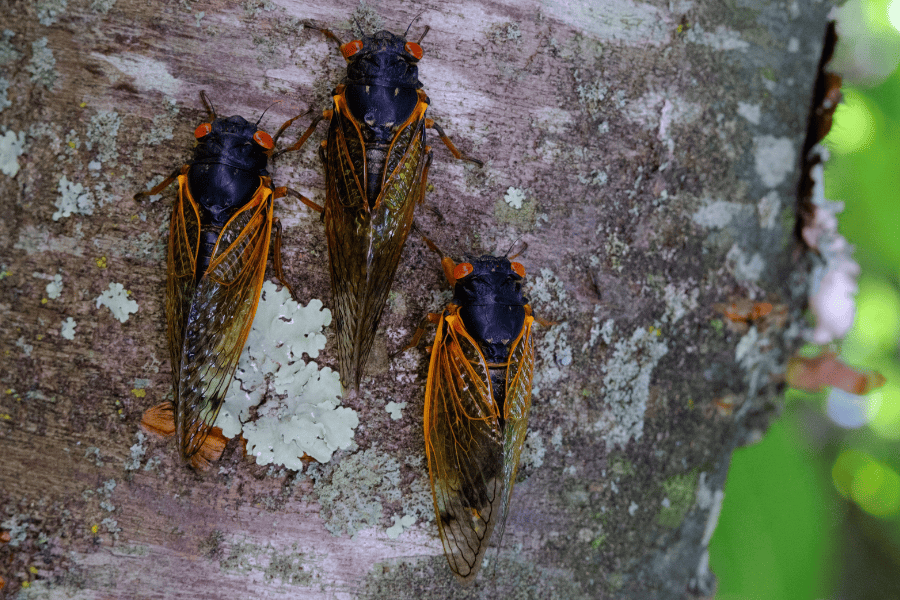READY TO GET STARTED?
REQUEST A FREE ESTIMATE
Fill out the form below or call (888) 466-7849 for a free, no-obligation estimate.

This spring, the Great Southern Brood and the Northern Illinois Brood are set to appear at the same time, also known as a dual emergence. The dual cicada emergence will affect the Midwest and Southeast, including Georgia, Alabama, Tennessee, and South Carolina. The last time a dual emergence occurred was in 1803, when Thomas Jefferson was president, and the Louisiana Purchase had just been completed. Let’s just say that when the next one happens, no one alive today will witness it!
These large insects live underground as nymphs for years and emerge by the millions every 13 to 17 years, depending on the brood they are a part of. They emit a loud buzzing sound when trying to find a mate, sometimes so loud it can keep you awake at night! They don’t bite, sting, or carry any diseases, and serve as pollinators and benefit the ecosystem.
Their main goal is to mate and reproduce. During the egg laying process they will trim holes into tree branches, sometimes causing branches to break off completely. This may sound like a negative thing, but they act as a natural pruning. The holes they leave behind help aerate the soil and allow for rainwater to get underground and nourish tree roots in the hot summer months.
Keeping cicadas away can be quite challenging, especially during their periodic emergences when they appear in large numbers. There are some strategies to minimize their impact on your property:
Cicadas might be annoying, but it’s important to remember their impact on the ecosystem of our forests. Limiting them on your property can be difficult, but there are ways. If the noise begins to get too loud, give a pest control company near you a call today!
Categories